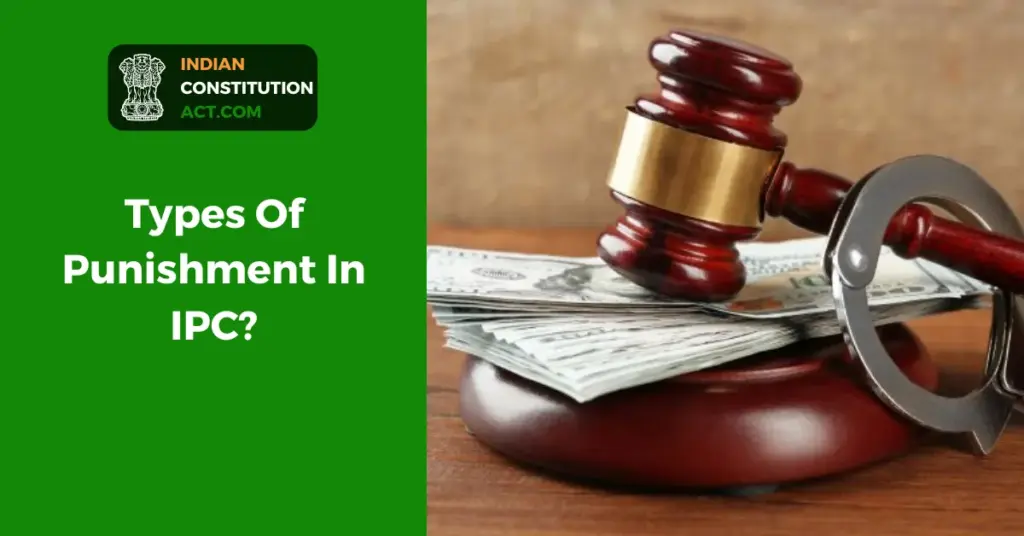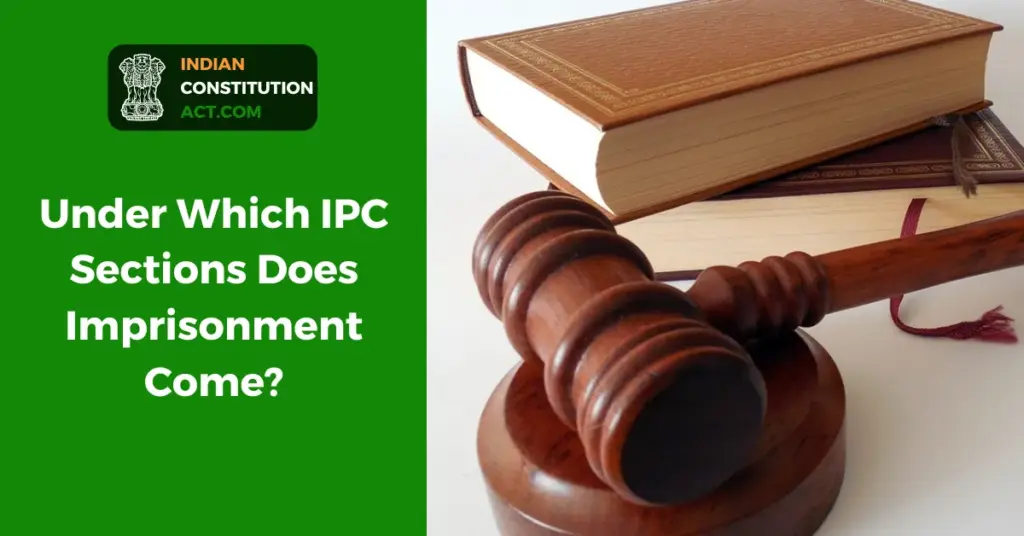There is a chapter within IPC called ‘General Exceptions’ in which exceptions are explained. The definition of Section 6 of IPC tells that these exceptions will not be repeated again and again in the definition of every IPC section. It will automatically apply to every section of the Indian Penal Code.
If someone commits murder, he will be punished under Section 300, but if the person who commits murder is less than 7 years old, he will not be punished. This thing is not written in Section 300, rather it is already written in the ‘general exception’ chapter. There are 3 main points in IPC. One is the definition, the second is penal provisions and the third is the illustration. Read the whole article for a better understanding.
Table of Contents
Types Of Punishment In IPC?

There are 5 kinds of punishments such as death penalty, life imprisonment, imprisonment, forfeiture of property, and fine. We have described all of them below:
Death Penalty: In this, the offender receives the death penalty from the court. In this punishment, the criminal is hanged with a rope from the stake until he dies. This punishment is not given for minor crimes. This punishment is given only for raping someone, killing someone, betraying the country, or doing any terrorist activity.
Life Imprisonment: In a sentence of life imprisonment, the offender has to spend the rest of his life in jail. As per IPC section 57, life imprisonment is 20 years.
Imprisonment: There are two kinds of imprisonment. The first one is rigorous and the second is simple imprisonment.
- Rigorous: In this imprisonment, the tasks are given to the offender such as cutting wood, digging, cleaning, etc.
- Simple: In this imprisonment, no task is given to the offender. He will just have to serve his jail sentence. He will not be required to do any other work while in jail as punishment.
Also read: IPC Section 54: Commutation Of Sentence Of Death
Forfeiture of Property: In this, the property of the criminal is confiscated by the government. Forfeiture of property as punishment is for offenses under section 126 and section 127.
Fine: The accused has to pay a fine in this case and if the accused is unable to pay the fine or does not have the money to pay the fine, then he has to serve a jail sentence.
Under Which IPC Sections Does Imprisonment Come?

Imprisonment arrives underneath sections 194 and 449 of the IPC. The maximum duration of imprisonment is 20 years. It is also called life imprisonment in official terms.
Who Implemented IPC In India?
IPC was implemented in India by the British. IPC was implemented in the year 1860 during the British rule. That is why we all know the current penal code as Indian Penal Code 1860. There are a total of 576 sections in the Indian Penal Code, which includes amendments and additions. Hope you understand section 6 of IPC.
